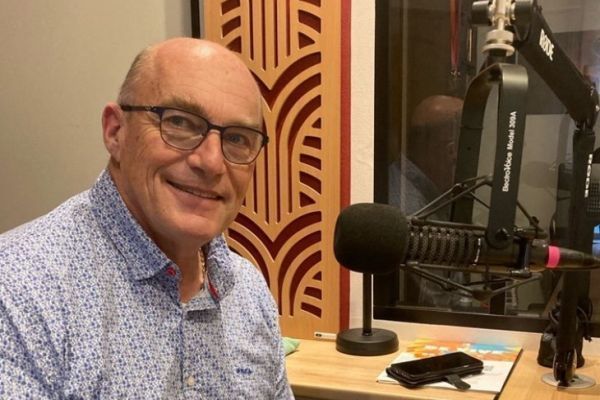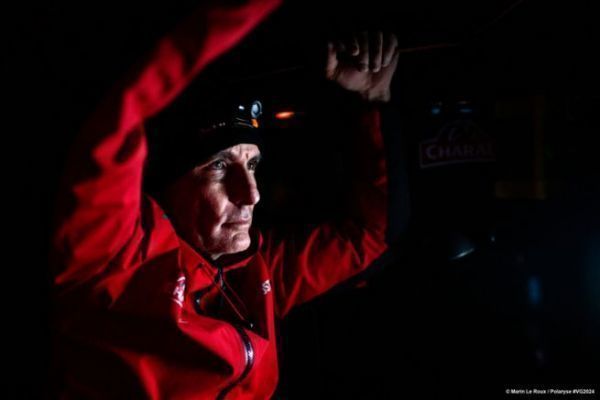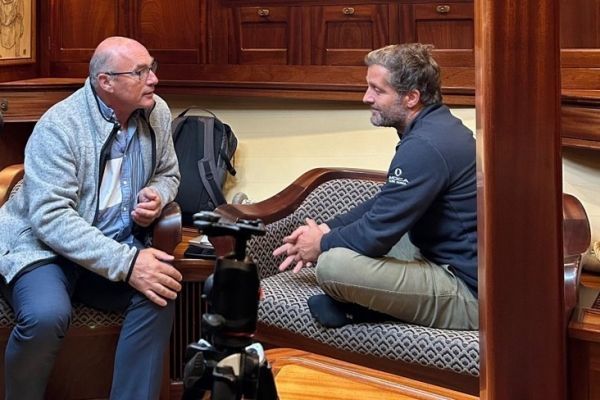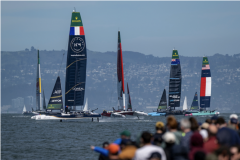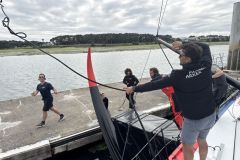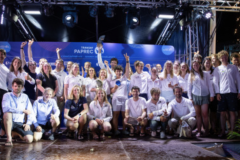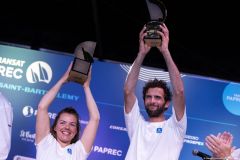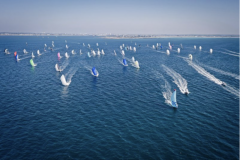Invisible to the general public, but indispensable to skippers, the mental coach is now a key player in ocean racing. Faced with unpredictable oceans, sailors now know they can't rely solely on their boat or their technique. Their minds have to be ready to sail through storms, and that's where the mental coach makes all the difference.
The Vendée Globe is a race in which skippers have to cope with enormous pressure, not only because of the competition, but also because of the solitude at sea. The coach's work begins well before the start of the race, with stress management, visualization and positive anchoring exercises. The aim is to teach skippers to manage moments of doubt and extreme fatigue, and to overcome crisis situations.
Topics defined by the navigator's needs and emotions
Sessions are tailored to the needs expressed by the skipper. The topic is chosen at the time or when the appointment is made. Certain subjects may also come up during the discussion, such as a difficulty, a point of tension or an ambition.
"Generally, in coaching, we work on an ambition, a victory or a podium. They're experts in their field. I have no advice to give them. We're in the business of accompanying, dialoguing with the customer, and focusing and guiding them towards the result they want. It's a dialogue between him and himself through my presence. To avoid him going round in circles, I guide him towards what he wants with my questions" begins Gérard Vaillant.
In the case of a skipper aiming for victory, the coach hears the skipper's request and guides him through the process of becoming the best boat/skipper pairing.
"Victory will be the result of how the sailor has sailed by defining a percentage of the boat's speed, choices of trajectory or sails... No one's 100%, but we can turn up the sensor without it being blocking." explains the coach.

Learn to manage your emotions
The coach also works hard on emotional management. There are many ups and downs in the Vendée Globe, and skippers can quickly go from euphoria to a big down.
"As Desjoyeaux used to say, in the Vendée Globe, there's a pain in the ass every day. On the New York Vendée, Jeremie was able to sail without an aerial. It's incredible to finish second while being deprived of some of the information needed to pilot the boat and define its trajectory. You have to be able to deal with a boat that has lost some of its potential, or an injured sailor. You have to accept that your body is no longer at 100% of its potential, while at the same time being able to be at the top of its current potential.
In the same way, it's a matter of unconditional acceptance of the fact that a boat can be damaged or injured. Charlie (editor's note: Dalin) suffered damage to the foils in the last Vendée Globe, in the Southern Ocean, which almost forced him to abandon. He finally repaired it at sea and managed to finish 1st over the finish line.
Eric Bellion suffered an inner-ear problem, reducing his balance, Bertrand de Broc was able to sew his tongue back on by himself, Charlie Dalin suffered a head injury... Today's boats are very hard, braking hard, shaking a lot...
"> When they encounter something incongruous or unexpected, they wonder what questions I'd ask them if I were with them. For example, with all your equipment and experience, how do you cope with what you encounter? Otherwise, they might think they're going to miss their Vendée Globe. They'll be sleep-deprived, they'll be eating poorly, and some of them will be seasick. So they won't be at 100% of their potential, but they'll have to make do with the potential they have left. And if they are able to reach their full potential, they may encounter problems and few solutions. They may be overcome by a feeling of loneliness. There's no manual for that. If they've worked at it, they're prepared for it. In life, they're surrounded by all kinds of people. They've never experienced solitude. It's at this point that they'll come up against their limits. These trials help them grow. And when they come back, we'll also have to deal with the excitement, because they'll have achieved something fabulous" explains the coach.

Learn to put yourself in a state of hypnosis to manage constraints
Gérard Vaillant uses hypnosis and self-hypnosis techniques to help sailors optimize their performance and overcome psychological challenges at sea.
Hypnosis is a modified state of consciousness in which a person is able to concentrate intensely on a thought or idea, while releasing attention from external stimuli. This state enables access to unconscious, often untapped resources, and improves aspects such as concentration, stress management and resilience in the face of hardship.
For example, Gérard Vaillant works with some skippers on a specific mental state from a previous Vendée Globe.
"p1" explains the coach.

Measuring results after the race
The mental coach also has a role to play after the race. Whether the skipper finishes first or last, or is forced to retire, the return to normal life can be complex.
"p1" explains Gérard Vaillant.
When he finishes the Vendée Globe, Jérémie Beyou will be able to confirm whether or not he has succeeded in his race, based on the very precise objectives he set himself.
"While for most skippers, the goal is to win, it's difficult to measure the skipper's pure performance in terms of victory. It also depends on the other boats and competitors. It's mainly after the competition, through feedback, that we assess the overall management: were the trajectory choices right? Was the strategy optimal? How were food, sleep and boat management managed? It's a question of measuring the process to assess the ability to produce a performance as close to the maximum level as possible. Sometimes they can be satisfied even without winning, where others wouldn't." concludes Gérard Vaillant.

 /
/ 

